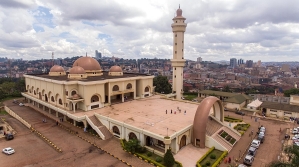
A Sudanese Christian family in Uganda is living in fear after Muslim extremists from Sudan and Somalia threatened to kill them.
Safaa Abdalla Yousif, who fled her native Sudan to Uganda due to conflict and religious persecution in 2016, on Tuesday (Nov. 19) received a text message from an anonymous number threatening to kill her family, she said by phone from Kampala.
“You are infidel because you left Islam, your blood will be shed,” the text read in Arabic, she said.
Yousif has often shared her faith with Muslims in the country. A Muslim had called her previously and, as they discussed the Quran, became angry, saying in Sudanese Arabic that he wished he had burned her vehicle on a prior occasion in Sudan “so that we get rid of you and can get some rest,” she said.
Muslims from Somalia have also threatened her. Yousif said she once gave discipleship classes to new converts, and a Somali Muslim who had put his faith in Christ was kidnapped and tortured by his co-religionists from Somalia and Sudan.
“He was sent back to warn us to close the church and stop discipleship classes,” she said. “He said, ‘If you don’t stop the ministry and close the church, they will kill you because you are now known to them very well.'”
Yousif said she has received death threats five times since 2020. Before last week’s threat, Muslim extremists had threatened her a month ago, she said.
The mother of a 16-year-old boy and a 13-year-old girl said the lives of her family were in great danger as they feared the Muslim extremists were monitoring their movements. Later last week, unknown persons attempted to open the window of the room where her daughter was sleeping, leaving the girl panicked.
“Since that day, I have not been sleeping well during nights,” Yousif said. “The girl is scared, and this made me upset. The move was a sign that we are being seriously monitored by the radical Muslims who wish to kidnap or kill us.”
The family has no option but to leave the area and search for a safer location, she said. They had moved to their current area due to previous threats.
Her husband was also attacked in October 2019 by four suspected Somali assailants who struck him with a blunt object and stabbed him in the head, according to a Kampala police report. Yousif also reported a threat to harm her to police in 2021.
She said she has been fasting and praying that God “give us peace, because this is too much for us.”
“My situation is dangerous, but I just put the Lord in front of me,” Yousif said. “I’m supposed to do something, but I do not know what. If there are people or a ministry who would like to provide psychological and social support, we would appreciate if they intervene and rescue my family from this worsening situation.”
Sudan is 93 percent Muslim, with adherents of ethnic traditional religion 4.3 percent of the population, while Christians constitute 2.3 percent, according to Joshua Project.
In Somalia, the death penalty for apostasy is part of Islamic law according to mainstream schools of Islamic jurisprudence. An Islamic extremist group in Somalia, Al Shabaab, is allied with Al Qaeda and adheres to the teaching.
Somalia is ranked 2nd on Christian support group Open Doors’ 2025 World Watch List of the 50 countries where it is most difficult to be a Christian. Its constitution establishes Islam as the state religion and prohibits the propagation of any other religion, according to the U.S. State Department. It also requires that laws comply with sharia (Islamic law) principles, with no exceptions in application for non-Muslims.
The threats on Yousif’s family in Uganda were the latest of many instances of persecution of Christians in Uganda that Morning Star News has documented.
Uganda’s constitution and other laws provide for religious freedom, including the right to propagate one’s faith and convert from one faith to another. Muslims make up no more than 12 percent of Uganda’s population, with high concentrations in eastern areas of the country.






